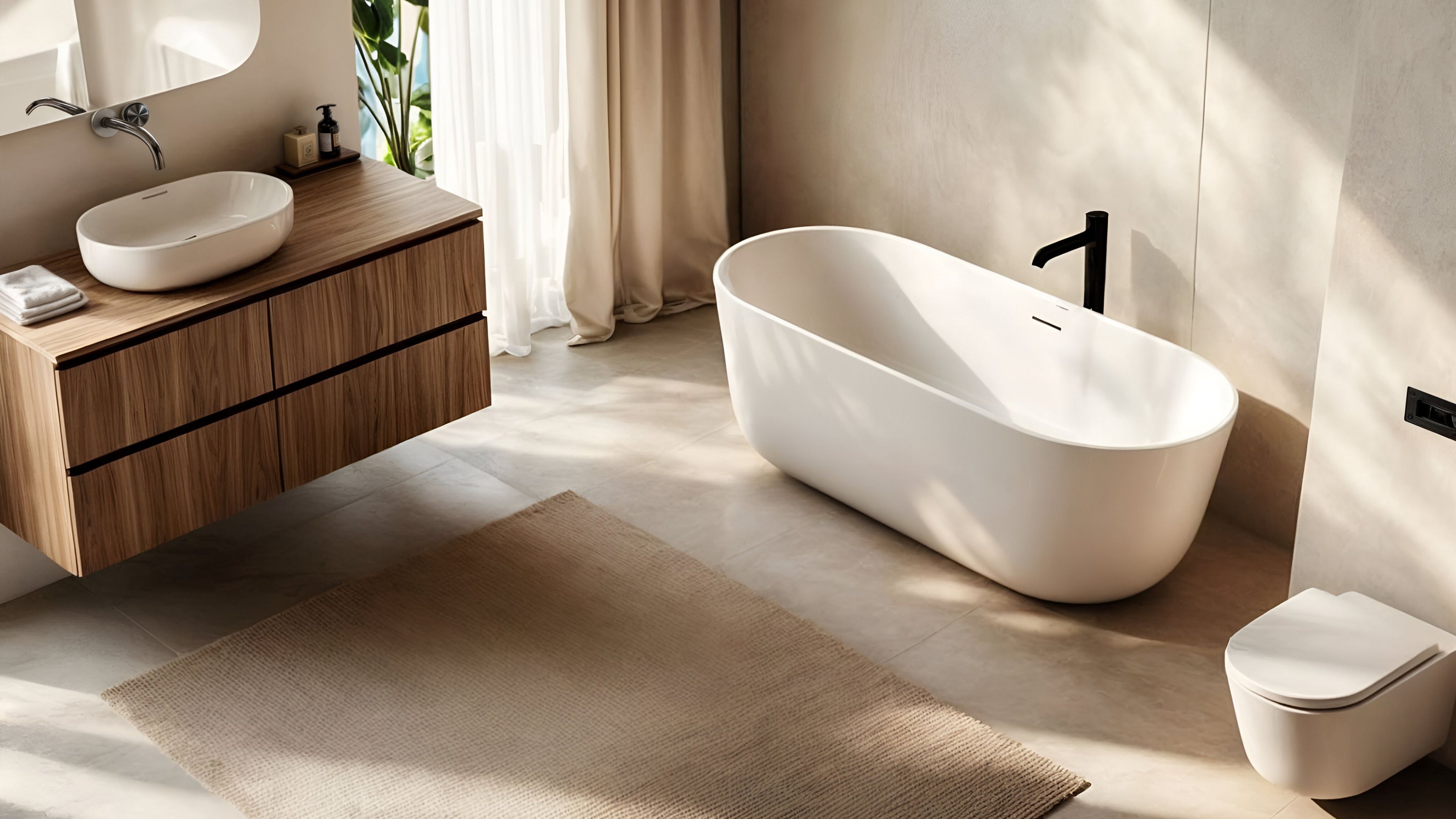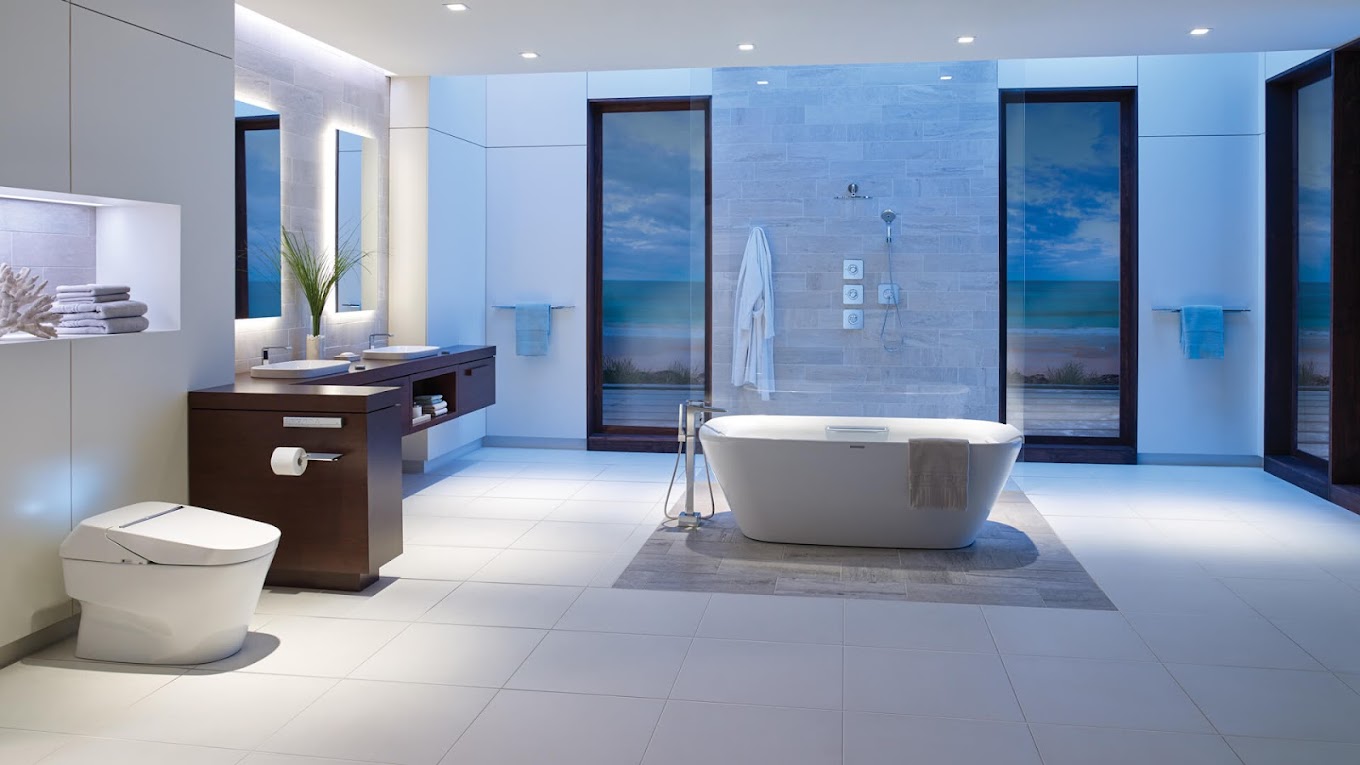For decades, toilet paper has been the go-to solution for personal hygiene in many households. However, in other parts of the world, bidets have long been considered a more effective and hygienic option. While some view bidets as an unfamiliar addition to the bathroom, others see them as an essential tool for cleanliness and comfort. As conversations around hygiene, sustainability, and personal well-being evolve, more people are reconsidering their approach. Could bidets offer a better, more hygienic alternative to toilet paper?
Why Toilet Paper No Longer Cuts It
Countries like Japan, Italy, and South Korea have embraced bidet toilet seats as a standard fixture, recognising their hygienic advantages over traditional toilet paper. However, despite their widespread adoption internationally, a significant number of Australians remain hesitant to install bidets in their homes. Whether due to unfamiliarity, misconceptions, or a reluctance to change, many Australians continue to rely solely on toilet paper, even as discussions around hygiene, sustainability, and personal health gain momentum.
As bidets continue to gain popularity worldwide, it’s time to consider the practical benefits they offer. From improving hygiene and reducing environmental impact to enhancing comfort and preventing health issues, bidets provide a compelling case for upgrading bathroom habits. Here’s why bidets are a superior choice for hygiene, sustainability, and personal well-being:
Bidets Offer a More Eco-Friendly Alternative to Toilet Paper
Bidets are an eco-friendly alternative to toilet paper, significantly reducing water usage, deforestation, and chemical pollution. A study in the International Journal of Women's Dermatology found that toilet paper production requires 36 gallons of water per roll, while bidets use only 1/8th of a gallon per use, cutting household water waste.
Additionally, toilet paper manufacturing consumes 15 million trees annually, contributing to deforestation and carbon emissions. This article highlights that toilet paper relies on bleaching and chemical treatments, whereas bidets minimise chemical waste and offer a fresher, cleaner alternative. "If you’re concerned about deforestation and chemical processing, consider installing a bidet. They use minimal water and are a great eco-friendly option for staying clean and fresh". Switching to bidets helps conserve water, protect forests, and reduce environmental impact, making them a smart and sustainable choice.
Bidets Improve Personal Hygiene and Reduce the Spread of Germs
Bidets work by using a stream of water to cleanse the genital and anal areas after using the toilet. Unlike toilet paper, which only wipes away waste and may leave behind residue, bidets wash the area thoroughly, ensuring better hygiene. The mechanism is simple: when activated, a nozzle or sprayer directs a controlled stream of water to remove bacteria, faecal matter, and other contaminants from the skin. This method is not only more effective but also gentler, as it reduces friction and irritation compared to wiping with dry paper.
One of the main ways bidets help reduce the spread of germs is by minimising hand contact with waste. Using toilet paper involves direct or indirect contact with faecal bacteria, increasing the risk of contamination on hands, bathroom surfaces, and even food if proper handwashing is not practiced. With a bidet, cleansing happens hands-free, significantly lowering the chances of cross-contamination. This is particularly beneficial in households with multiple users, where reducing bacteria in shared bathroom spaces can improve overall hygiene.
Bidets also offer additional features that enhance cleanliness. Many modern bidet toilet seats and bidet sprayers include self-cleaning nozzles, ensuring the water source remains sanitary after each use. Some high-end models even come with adjustable water pressure, temperature control, and air-drying functions, providing a more comfortable and customised experience. This eliminates the need for excessive wiping, which can irritate sensitive skin and lead to discomfort, especially for individuals with conditions like haemorrhoids or irritation.
Medical professionals also recognise the hygiene benefits of bidets. Dr. Scott Walter, a board-certified dermatologist, compares using toilet paper to cleaning dirty hands with a dry paper towel, emphasising that bidets offer a more thorough and gentle cleanse. This improved method of cleaning helps remove residual bacteria more effectively than wiping alone, further supporting personal hygiene and overall cleanliness.
Bidets Provide Comfort and Health Benefits for Everyone
Bidets provide health benefits for people of all ages, offering a hygienic and gentle alternative to toilet paper while reducing the risk of infections and skin irritation. While bidets are beneficial for everyone, certain groups of people may experience even greater advantages, including individuals with urinary tract infection (UTI) risks, haemorrhoids, mobility challenges, and sensitive skin conditions.
One group that benefits significantly from bidets is women, especially those prone to UTIs and pregnant or postpartum women. UTIs often occur when bacteria like Escherichia coli migrate from the anal region to the urethra. Traditional wiping methods can inadvertently contribute to bacterial transfer, while bidets provide a gentle, hands-free cleansing, reducing the likelihood of bacterial spread. Dr. Scott Walter, a board-certified dermatologist, notes that bidets provide a more thorough and gentle cleanse, potentially lowering UTI risks by improving hygiene. Additionally, pregnant and postpartum women may find bidets especially soothing, as they can relieve discomfort from swelling, haemorrhoids, and perineal soreness after childbirth.
Older adults and people with mobility issues also benefit from bidets, as they provide an easier and more accessible way to maintain hygiene. For seniors, arthritis or limited mobility can make reaching and wiping difficult, increasing the risk of inadequate cleaning and infections. Bidet toilet seats offer hands-free washing, allowing elderly individuals and those with disabilities to maintain hygiene independently and with less physical strain. According to the Cleveland Clinic, bidets are a healthy option for individuals with limited dexterity, as they reduce the need for excessive wiping and movement.
People suffering from haemorrhoids and anal fissures also benefit greatly from bidets. Haemorrhoids are swollen veins in the rectal area, often caused by straining during bowel movements or prolonged sitting. Dry toilet paper can aggravate these conditions, causing irritation, pain, and even bleeding. Bidets offer a soothing and gentle alternative, using water to clean without friction, which helps maintain comfort and promotes healing. Healthline highlights that bidets are a gentler option for individuals with haemorrhoids, reducing irritation while ensuring proper cleanliness.
Even young children and parents can benefit from bidets. Children who are still learning proper hygiene may not always wipe effectively, increasing the risk of irritation and infections. A bidet makes it easier for children to clean themselves properly, ensuring better hygiene and reducing dependency on toilet paper. Parents changing diapers may also find bidet sprayers useful for quick and thorough cleaning during diaper changes.
Finding the Right Bidet for Your Needs
Whether you've experienced using bidets overseas or in a luxury hotel, you can now install one in your own home with ease. Modern bidet seats are designed to attach seamlessly to existing toilets, eliminating the need for costly renovations. These easy-to-install solutions provide the benefits of bidet cleaning at an affordable price. Many budget-friendly models offer adjustable water pressure and temperature, while premium models like TOTO Washlets include heated seats, self-cleaning nozzles, and air drying for added comfort. Austpek Bathrooms offers a variety of bidet seat options, ensuring that homeowners can find a model that fits their needs and budget. Regardless of experience level, bidets provide a cost-effective way to enhance hygiene, improve comfort, and modernise any bathroom.





